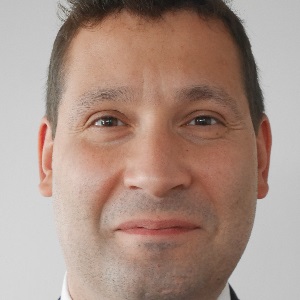
Claude Gentile has master degrees in management, in legal studies and in business psychology, as well as a certificate in corporate governance. Since 2000, he has worked in executive positions and as a board director in Swiss companies.
He defended his Executive Doctorate in Business Administration (Executive DBA) in September 2021 on the topic of ‘Entrepreneur resilience’, under the supervision of Professor Caroline Mothe (IAE Savoie Mont Blanc, France).
Thesis Direction
Pr Caroline Mothe
Thesis Title
Entrepreneurial resilience : Exploratory research in the Swiss digital sector
Abstract
In Switzerland, entrepreneurs play a considerable role in society and the economy. If we exclude bankruptcy, failure in entrepreneurship can take on a range of forms for the entrepreneur, including a wholesale reshaping of their project. The entrepreneur is a key individual in the project, and must therefore overcome this adversity and attempt to adopt a positive trajectory in their personal development. This is referred to as « entrepreneur resilience », and is the focus of our research. From a managerial and theoretical point of view, it is crucial to better understand what gives rise to this resilience, what stages make up the process of resilience, and what factors influence these stages.
We collected life stories from twelve entrepreneurs in the digital sector over the course of four encounters with each. We used emergent coding on the material we collected, and had the interview subjects confirm both our transcriptions and synthesis in order to ensure the data would be authentic. We then used the Gioia method to categorise it into 50 first-order categories, 24 second-order themes and 4 aggregated dimensions. We also used the Sphinx software to textually analyse the data.
The results confirm that there is indeed an entrepreneur resilience process, which can be outlined and broken down into separate stages, and they also suggest that some essential factors have been overlooked in past literature. The resilience process includes stages of acceptance, resistance, solving, recovery and personal development. The solving stage is key in terms of both mental and concrete progress, and appears to be directly influenced by management actions. Moreover, the entrepreneur’s sense of responsibility (internal) and their professional support (external) emerged as the most important factors, particularly during the resistance and solving phases.
From an integrated standpoint (i.e. examining the separate stages of the process and the resilience factors at each stage), we propose a model for the entrepreneur resilience. The main managerial recommendations relate to anticipating chronic adversity, preserving freedom of action, and focusing on concrete solutions. The similarities between management action as a solving factor for overcoming adversity and the logic of action through « effectuation » in uncertain situations suggests that entrepreneur resilience could be anchored within the theory of effectuation. Management action also creates a scope for interaction between organisational resilience on the one hand, and the resilience of the entrepreneur as an individual on the other.

